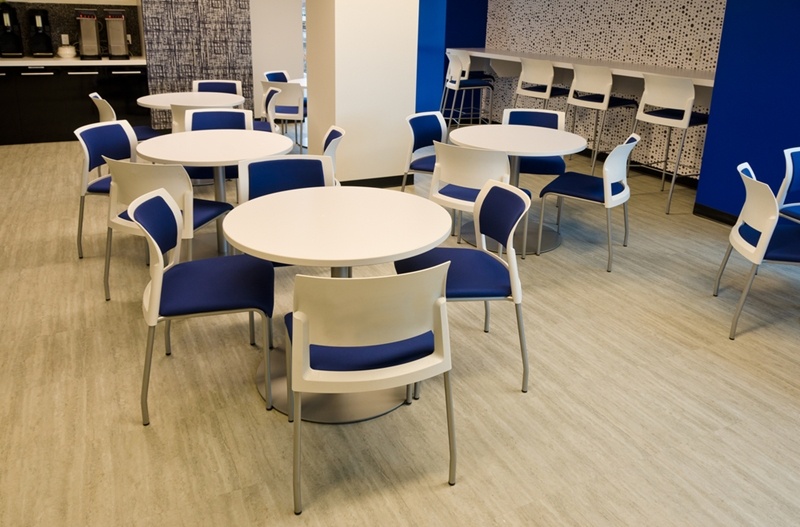The Latin phrase "caveat emptor" is usually translated into English as "buyer beware," although the original is sometimes used as well. Another way to express the same idea is to label something "sold as is." Many furniture retailers, such as IKEA, have an entire section of such as-is merchandise, which usually consists of chairs, beds, tables, etc. that are being discontinued, are slightly damaged or have been returned.
These items are sold at a steep discount off their MSRPs, if only to move them quickly out of the store. So any prospective buyer has to weigh the potential savings against the possibility of the piece being scratched up or eventually needing some replacement parts that are no longer in production. The purchaser also assumes all risk for the product and cannot return or exchange it – is that worth the low price?
'Caveat emptor' and shopping for financial software
When shopping for accounting and business intelligence software, SMBs often have to navigate similar "buyer beware" dilemmas:
- For example, will the huge initial discount be offset by price hikes later on? And is there any cap on these increases?
- Does the vendor have a solid track record of supporting this enticing subscription plan with robust, secure IT infrastructures?
- Does the pricing bundle everything together, or are there breakouts for individual components as well as overages past a number of transactions?
- This software suite looks ready to go – just like a lot of those as-is items, it is "pre-assembled" – but what if it needs maintenance down the road?
The irony here, however, is that the legacy ERP systems and other financial applications (e.g., Excel and traditional accounting programs) that many SMBs still use are the closest technological equivalents of that IKEA as-is furniture. More specifically, these solutions may be so old that they are no longer being updated, or they may require a few do-it-yourself repairs, customizations and integrations. Either way, relying on them can be risky.

Furniture shopping presents some interesting decisions about durability and cost.
When and why should SMBs leave their current systems behind and invest in something that is more efficient and future-proof? Let's look at what they have and what they could get in terms of what common pieces of furniture each solution resembles.
The old chair with the loose joints: QuickBooks and other on-prem software
Many of the most widely used accounting tools actually predate the Internet, having first arrived during the great migration to Windows in the 1980s and '90s. They are still passable for handling tasks such as account reconciliation, billing and invoicing and inventory management, but often only with heavy, costly customizations.
"Many popular accounting tools predate the Internet."
They are sort of like rickety table chairs that need a lot of extra glue and fresh upholstery just to be comfortable to sit on. Even then, if they come under unexpected pressure (like a chair would if you put a lot of heavy books on its seat), they could fail because of structural deficiencies. The customizations would reveal themselves as the "dead-end" modifications they really are, with total costs exceeding those of upgrading to something newer.
The plush couch with the missing parts: Excel and manual data entry processes
Repetitive data entry is one of the most annoying aspects of revenue recognition workflows. Sales teams, service personnel and project managers end up moving data between different applications – e.g., customer relationship management systems and professional services automation solutions – and checking schedules in Excel before recognition can even be initiated.
This activity is as time-consuming and counterproductive as painstakingly putting together an as-is (or even a new) couch, only to find that a critical component like a screw or leg is missing – this happened to some Target customers in 2007. Relying on manual processes also means that closing your books each month can quickly become a chore as you hunt for that proverbial missing piece. All the extra hours might result in unneeded duplicate reports and improperly keyed cells, which ultimately will only complicate your SMB's decision-making, tracking and planning operations.
The new desk with the big drawers: Cloud budgeting and forecasting software
Cloud software such as Adaptive Insights gives you a rock-solid technical base from which to streamline, integrate and customize your financial processes. Think of it as a new, sturdy desk, with plenty of space and drawers to accommodate your company's workflows:
- You get automatic software updates and infrastructure maintenance included in your subscription. In other words, it's built to last and does not have to be constantly retooled at great cost.
- It has a familiar, intuitive and Web-based look and feel that makes it like a better version of Excel. All the hacks and weird customizations (not to mention risk-taking) of the past can be put aside.
- Dashboards help you visualize and keep tabs on KPIs and other metrics, condensing the enterprise down to a glance. Like quality furniture, it both looks good and works well.
Changing your financial systems is a big undertaking that ideally won't happen that often. But like gathering up the furniture for a new apartment or home, you will want to ensure that you are getting something that will give you the most bang for your buck and not require too many repairs over the long run.
Cloud software is the ticket. Vet any prospective cloud vendor before you get started, and check to see if the delivery model is right for you. Upgrading to a cloud-based system can ultimately unlock the power to automate many of your processes, support remote workers and grow your SMB without drastically increasing your headcount or IT expenditures. It fuses the durability of well-built furniture with the cost-effectiveness of the discount section.





